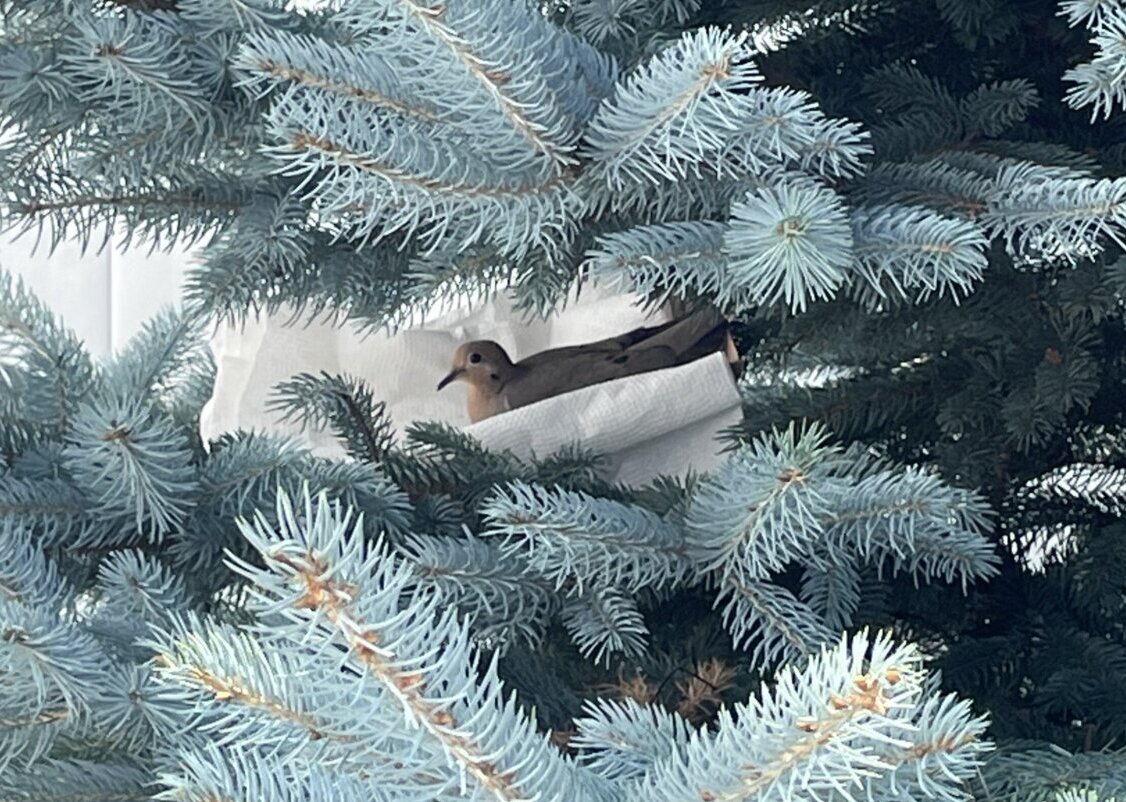Evelyn Alexander Wildlife: Renesting Baby Birds Is Not as Hard as It Seems

While many wildlife-related rumors are constantly debunked by professionals, one has remained a common misconception for decades: The idea that you cannot touch baby birds. It’s believed that touching a baby bird will attach your scent to the baby and make its mother not recognize/disown its own offspring. Yet that is simply not true.
Birds, in reality, don’t have a strong sense of smell. They will not smell nor even care that a human touched its offspring. The issue lies with the misconception causing people to ignore a baby bird that has fallen out of a destroyed nest, under the pretense that it will result in the baby bird being abandoned by its mother.
Noelle Dunlop, Director of Development of the Evelyn Alexander Wildlife Rescue Center (EAWRC), has been explaining their renesting technique, which does require physical contact, to locals across Long Island and saving the lives of various species of baby birds
Recently in Levittown, a woman called the EAWRC after her dog was in the backyard and jumped on a small pine tree, knocking down a mourning dove’s nest. After investigating, the woman realized two offspring were in the nest, and while one sadly died, one was alive and stranded on the ground. To legally care for mourning doves, a wildlife rescue center has to be federally approved to rehabilitate songbirds. With the closest wildlife rescue center, Wildlife Center of Long Island in South Huntington, closed temporarily for relocation, the woman called the EAWRC for guidance.

“There’s a big gap in Nassau County for songbird rescue,” Dunlop said. “There are plenty in Suffolk — the Star Foundation in Middle Island and Sweetbriar in Smithtown — but the closest one to Nassau in the opposite direction is the Wild Bird Fund in Manhattan.”
Thankful that the woman called, the EAWRC was able to talk the woman into rescuing and renesting the baby bird herself, without having to bring the stranded baby across Long Island for rehabilitation.
“When finding a baby bird that’s been knocked out of the nest, and the nest has been destroyed,” Dunlop said. “First make sure the baby bird isn’t injured.” Then, find a small cardboard box that isn’t deep.
“If the box is not shallow, the mother or father bird won’t identify the relocated baby,” Dunlop adds. Using paper towels to line and cushion the interior of the makeshift nest is necessary for the “poop test.”
“The poop test,” Dunlop explains, “is a test to make sure that the bird was located by its mother. If you check back in on the nest after a day, and the white paper towel has poop from the baby bird, you can assume the mother located the baby and is feeding it well.”
After using the white paper towels to cushion the cardboard, and carefully picking up the baby and transferring it to its new nest, Dunlop states that, “you should try to reattach the makeshift nest as close as possible to the location of the destroyed nest so that the parents can easily find its baby.”
Most birds are not picky with their nests, so as long as the new nest is close to the original, the mother and father birds should be able to locate the new nest and stick with it as if the nest never changed.
Because the EAWRC was able to walk the woman through the process of renesting the baby mourning dove, the bird is living happily with its family, and not in rehabilitation alone.
While the rumor that touching baby birds and its related abandonment is still around, the EAWRC is working hard towards debunking that rumor and promoting renesting at home, with appropriate guidance. Recently, the EAWRC has had numerous calls about destroyed nests and stranded baby birds across Long Island, whether from other animals or pets accidently breaking the nests.
They have successfully self renested across numerous species, from songbirds to robins, and actively support it to save healthy baby birds from an unnecessary life in a rehabilitative habitat, and not a natural one.
The center is located at 228 West Montauk Highway, Hampton Bays. It can be reached at 631-728-4200, and animal emergencies can be reported at 631-728-WILD (9453). The center is open 9 a.m.–5 p.m. seven days weekly. Visit wildliferescuecenter.org for info.









